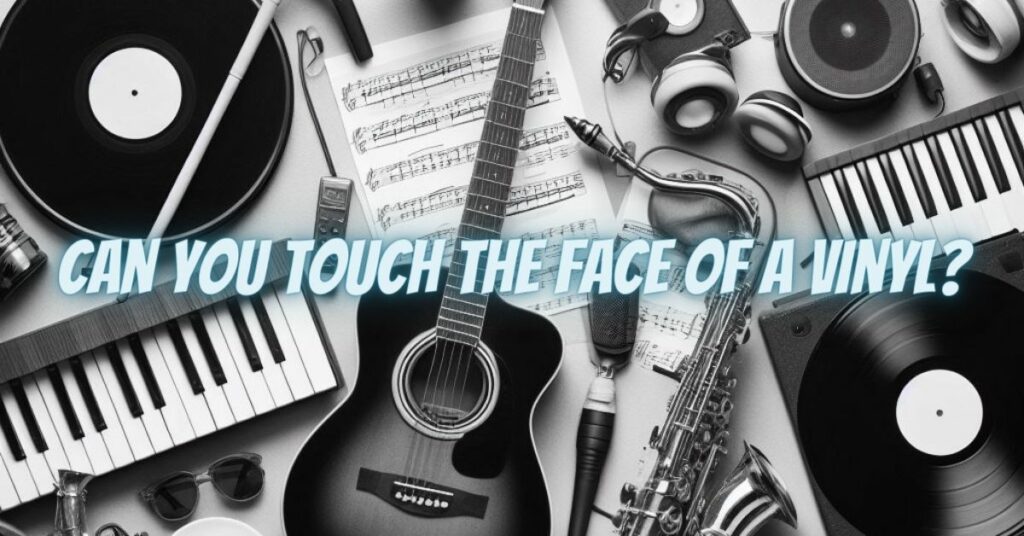Yes, you can touch the face of a vinyl record. However, it is generally not recommended, as it can increase the risk of damaging the record.
The face of a vinyl record is the side of the record that contains the grooves. The grooves are what the stylus on your record player reads to produce sound.
The face of a vinyl record is very delicate and can be easily damaged. Even small scratches and fingerprints can affect the sound quality of the record.
If you touch the face of a vinyl record, you can transfer oils and dirt from your fingers to the record surface. Over time, this can build up and cause the record to become dirty and scratched.
In addition, the oils from your fingers can attract dust and debris. This can also cause the record to become dirty and scratched.
If you scratch the face of a vinyl record, you can damage the record grooves. This can lead to pops, clicks, and other surface noise.
In some cases, deep scratches can even cause the record to skip.
If you touch the face of a vinyl record, you can also leave fingerprints on the record. Fingerprints can also attract dust and debris, and they can also make the record look dirty.
In addition, if you play a record with fingerprints on it, the stylus on your record player can pick up the oil from the fingerprints and transfer it to your other records. This can spread the dirt and oil to your other records, and it can also damage the stylus.
When is it okay to touch the face of a vinyl?
There are a few times when it is okay to touch the face of a vinyl record:
- When placing the record on the turntable. You will need to touch the face of the record to place it on the spindle.
- When removing the record from the turntable. You will need to touch the face of the record to remove it from the spindle.
- When cleaning the record. If you are cleaning the record with a record brush or record cleaning solution, you will need to touch the face of the record to hold the record in place.
Other than these times, it is generally best to avoid touching the face of a vinyl record.
How to minimize the risk of damaging your vinyl records
If you do need to touch the face of a vinyl record, there are a few things you can do to minimize the risk of damage:
- Wash your hands first. This will help to remove any oils or dirt from your hands.
- Be careful not to touch the grooves of the record. If you do accidentally touch the grooves, clean the record immediately with a record brush or record cleaning solution.
- Handle the record by the edges. This will help to prevent you from putting too much pressure on the record.
How to clean a vinyl record
If your vinyl record is dirty, you can clean it using a record brush or record cleaning solution.
To clean a record with a brush, simply brush the record in a circular motion, starting from the center of the record and working your way out to the edges.
To clean a record with a record cleaning solution, follow the instructions that come with the solution. Most record cleaning solutions require you to rinse the record with water after cleaning it.
How to store vinyl records
The best way to store vinyl records is to store them in a cool, dry place. Avoid storing your records in direct sunlight or in humid environments.
You should also store your records in a record sleeve and an outer sleeve. A record sleeve will help to protect the record from dust and debris, and an outer sleeve will help to protect the record sleeve from wear and tear.
It is generally not recommended to touch the face of a vinyl record, as it can increase the risk of damaging the record. However, there are a few times when it is okay to touch the face of a vinyl record, such as when placing it on or removing it from the turntable, or when cleaning it.
If you do need to touch the face of a vinyl record, there are a few things you can do to minimize the risk of damage, such as washing your hands first, being careful not to touch the grooves, and handling the record by the edges.
By following these tips, you can help to keep your vinyl records in good condition for many years to come.


